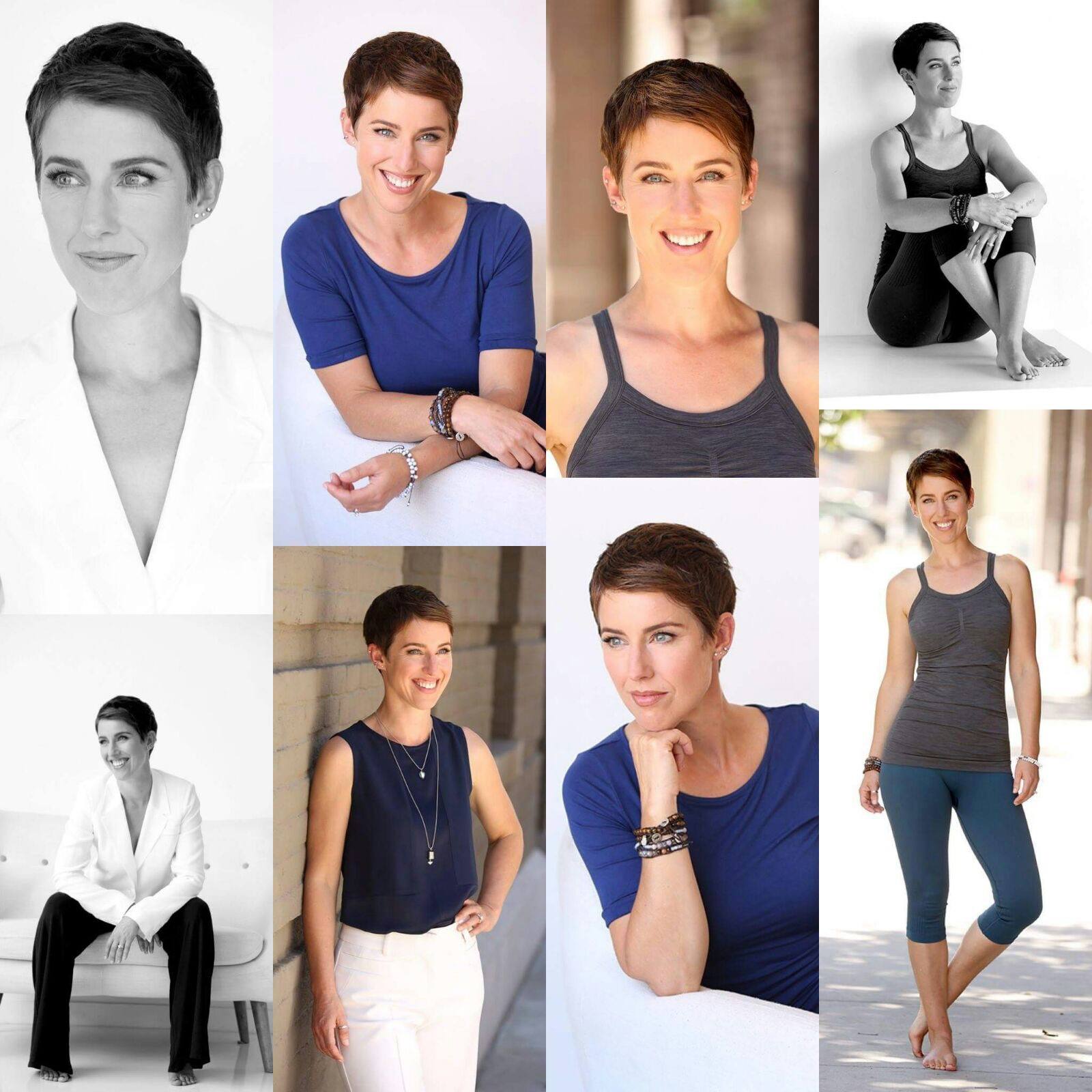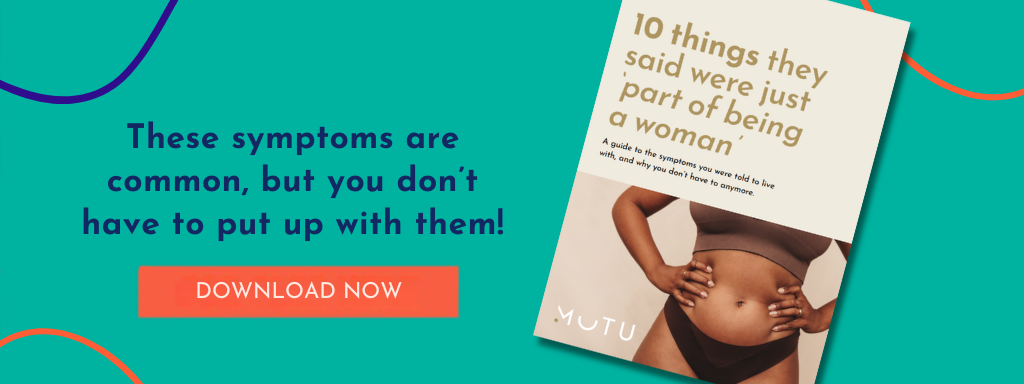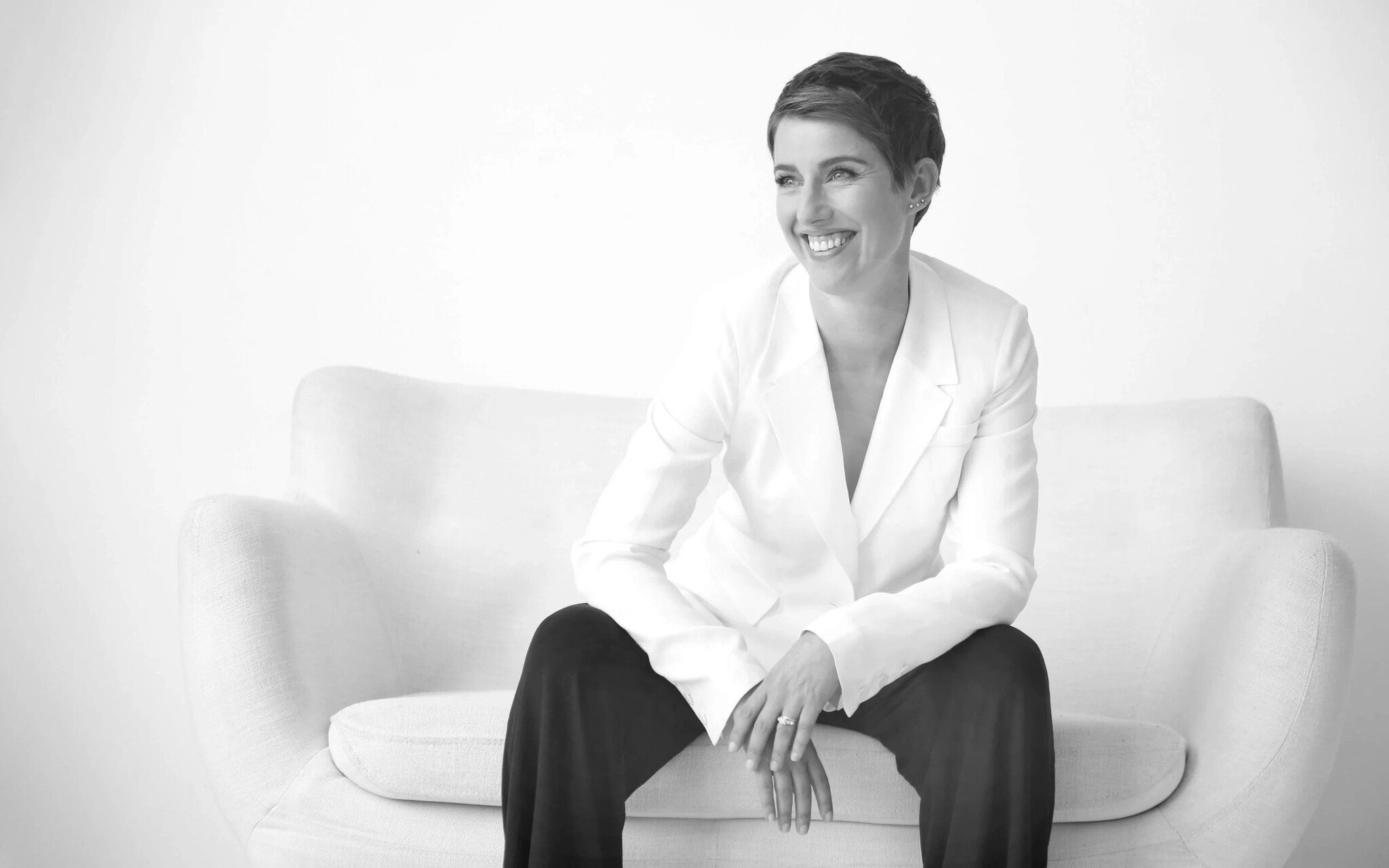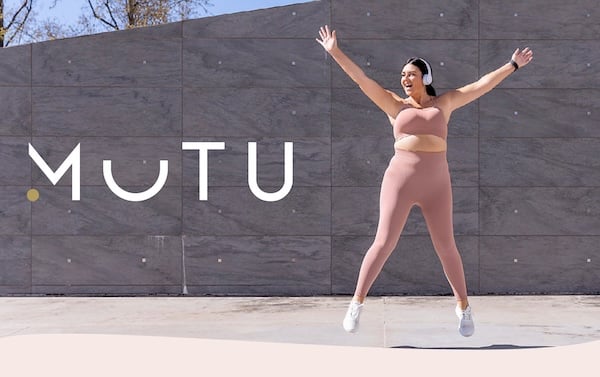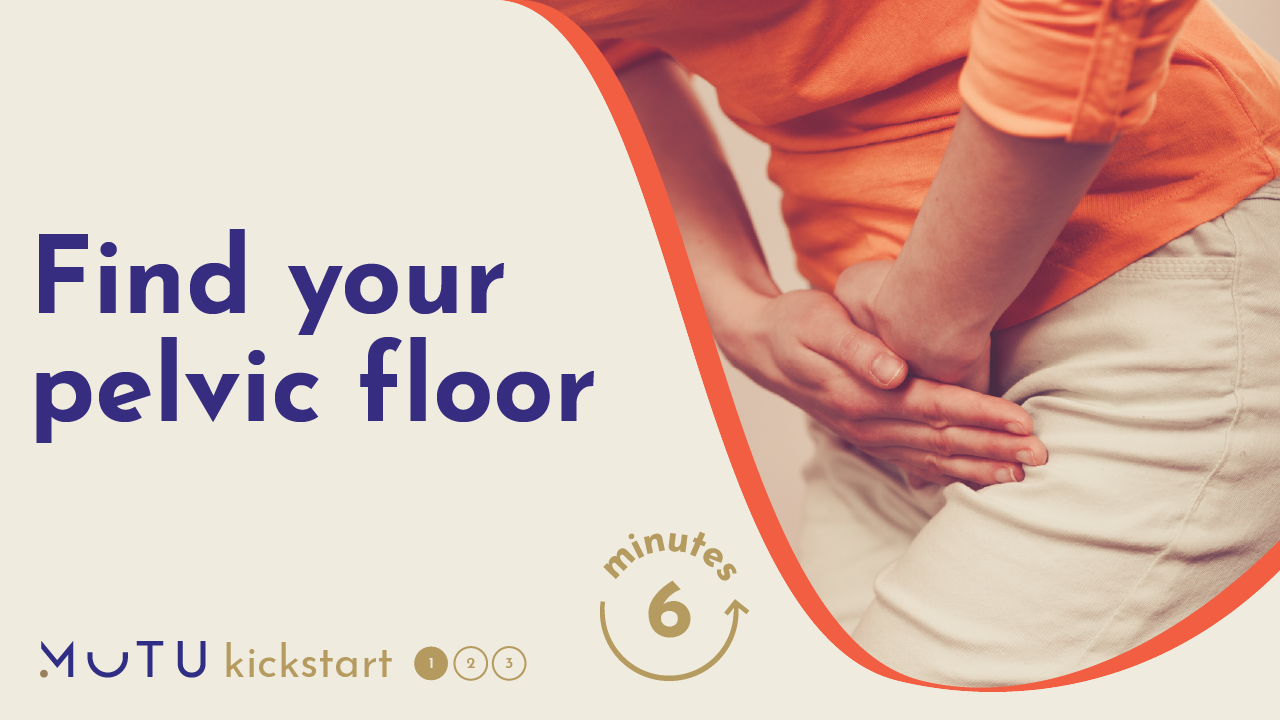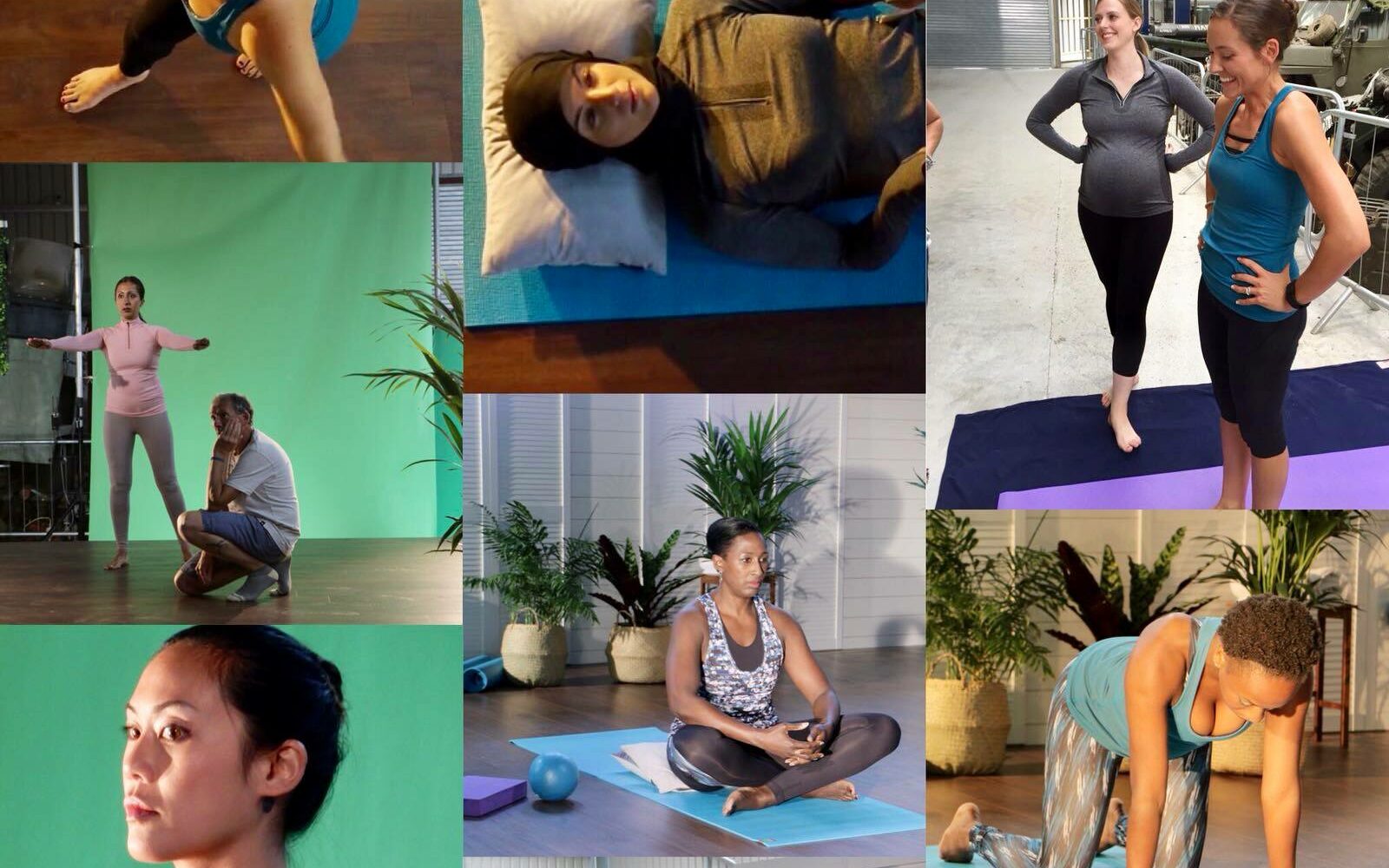Apps! Influencers! Buff Mommies! Oh My! Spotlight on a decade of postpartum workout trends as MUTU celebrates its ten year anniversary.
Let’s flash back to 2012
Yoga raves, runs featuring colored powder tossed in your face, brunch chatter about indoor cycling classes with mantras and DJs, workouts where half the class was throwing a tire across the room, wrists suddenly decked out in biomonitoring fitness trackers… Ten years ago was hardly the dawn of the fitness boom, but it was a time of explosive industry growth. With that came a rise in the niche workout trend we see so much of today.
According to the global management firm, McKinsey & Company, the health and wellness services market is increasing at a rate of 5-10% annually. Fitness is now a $1.5 trillion dollar and growing global industry. Interestingly, their reports find that the concepts of what makes us healthy and well have expanded in the past decade to include a more holistic take on fitness. More than just getting trim, the wellness and fitness boom includes things like mindfulness, sleep, and community in addition to losing weight and feeling more attractive.
Trends in postpartum fitness | An Interview with Wendy Powell
These insights are not exclusive to what might be seen as the traditional fitness buff, either. Over the past decade, there has been a stronger emphasis on holistic fitness and well-being amongst the general population, which is inclusive of pregnant people and new parents.
Additionally, the rise in this holistic approach is particularly apparent in the pregnant population. This is especially true when it comes to addressing issues around high-risk pregnancies from metabolic disorders (hypertension, gestational diabetes, etc.) and in looking into how to curb the rising rates of postpartum depression. More needs to be done in terms of better research and education, but many of the strides in fitness advice in the childbearing year over the past decade are positive.
As MUTU celebrates more than a decade of service, we’re taking a look into how this revolutionary postpartum fitness app has played a role in improving the health and well-being of moms around the world. In this interview with founder & CEO, Wendy Powell, you’ll learn how postpartum fitness trends have changed (for better & for worse) and what to expect from the next ten years of MUTU.

Who is Wendy Powell?
Wendy is Founder and CEO of MUTU System and an established leader in safe and effective postpartum recovery. Not just a fitness enthusiast and mum, Wendy has the cred to back up MUTU’s programming. She’s worked side by side with pelvic floor health guru, Dr. Tracy Sher for years. She’s an acclaimed Master Trainer and teacher and has spoken in global forums on postpartum health and fitness.
Below is an interview with Wendy on the growth of this revolutionary postpartum fitness app and the MUTU movement.
*Note: This interview has been edited for formatting purposes.
What has been the biggest change in postpartum fitness in the past ten years?
The postpartum fitness sector is a much more crowded marketplace and space. It was just Tupler or MUTU in the early days, we were the only ones talking about diastasis! Now, we see a lot more talk, verging on obsession, with Diastasis recti online, too. There’s more understanding, education, research, and debate on women’s health and postpartum issues. This is a GOOD thing! We all are so much better able to serve communities of postpartum parents than 10 years ago.
What has been the most major shift in your PERSONAL approach to fitness coaching?
Biomechanics and the importance of alignment for diastasis, from experts such as Katy Bowman, provided a big shift. Diane Lee was talking about ‘functional diastasis‘. Both these experts were key for my learning and helped inform my education and practice in the early years.
An emphasis on mental health, body positivity and the mind/body connection was all new when I first started talking about it, now it’s a predominant narrative. I knew it was KEY from the start — it’s why I made MUTU — so it’s good to see more of that conversation out there. The disconnection, the feelings of our body not ‘performing’ or working and how that impacts our actual physiology are components just as important to personal fitness and wellbeing in postpartum as tips on getting rid of belly fat or rebuilding strength postnatally. For a long time only MUTU was ‘going there’ with these issues, but to me it was always the missing piece in fitness and wellbeing coaching.
Can you recall any postpartum exercise myths or bits of misinformation from the past decade that have been tossed to the wayside? Anything funny/harmful you’re glad to see go?
Cue-ing “belly button to spine” and encouraging forceful contractions, advice around tight belly binding, the message of ‘engaging your core’ all the time, flat tummy obsessions… Happy to see all these less prominent in the postpartum fitness conversation!
There’s also been a big move toward more strength and educated training of the needs of a postpartum body. Plus, moving away from what ‘not to do’ with overly cautious core work. We now are more confident and informed to teach progression and intensity.
Do you see any big trend shifts in what new moms are looking for when it comes to working out in pregnancy and the postpartum period compared to 10 years ago?
The good: Mind / body. Confidence. Acceptance, positivity. Real talk. Honesty.
The not so good: The endless feed of “perfect” and expectations and comparison we see on social media.
What role has technology/social media played in the world of postpartum fitness?
There has been a rise in Influencer culture and we see a lot of Influencer (vs expert) accounts and posts. It’s seems anyone who has a fitness qualification or has had a baby is a pelvic floor and core expert now… which is of course not the case. Also important to note, more information doesn’t always mean good information. That is a clear issue when considering the role of social media in distributing thoughtful and expert postpartum care advice.

What negative trends are you seeing in the way we talk about postpartum fitness and recovery? What should parents be mindful of when looking into post pregnancy exercise information and programs?
Be careful with obsessing over ‘conditions’ like Diastasis recti without really understanding them. Diastasis recti and other pelvic or core issues are so often treated as ‘isolated’ concerns with isolated advice. However, these are whole body issues with multiple factors at play, and not solved by band aids or quick fixes. DR is a normal condition to pay attention to, over a condition to be ‘fixed.’
Another big issue from the past decade, even with progress, is a continued lack of diversity and representation. Mom fitness culture (and fitness culture in general) is still a very skinny white space.
What about positive trends? What’s the most promising shift towards safe recovery and fitness?
Honesty, better education and understanding, more debate and education for instructors, more collaboration between medical professionals and fitness, more knowledge and research.
Emphasis on strength and function over aesthetics.
Some diversity and representation, but nowhere near enough.
Is there something more primary care providers could be doing to shift postpartum wellness trends into a healthy place?
Women are not prepared for postpartum recovery! They need to be signposted to credible sources of information and guidance. This needs to be more of a focus in the whole pregnancy and beyond information and care space.
There is also much work to be done on to tackle maternal inequalities, especially for black mothers. Inequality of treatment, institutional conscious and unconscious bias, and inequality of outcomes are very serious issues.
What is MUTU’s role in the future of healthy postnatal recovery?
MUTU has always been the ‘whole package’. Whole body, positive, non judgmental, inclusive… Importantly, too, it’s built on integrity, is truly evidence based and with medical referrals and collaboration from around the world.
MUTU has NHS recognition in the UK. There’s real trust in a brand that has always had your back. We’ll continue to be that for the next ten years.



